“CFA CRÉDITOS VI” Financial Trust for $11,000,000,000

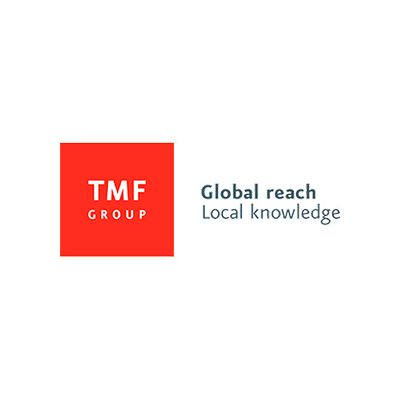
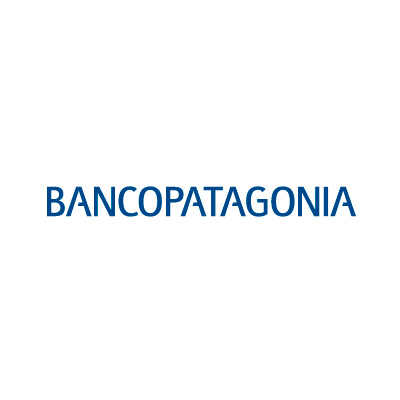
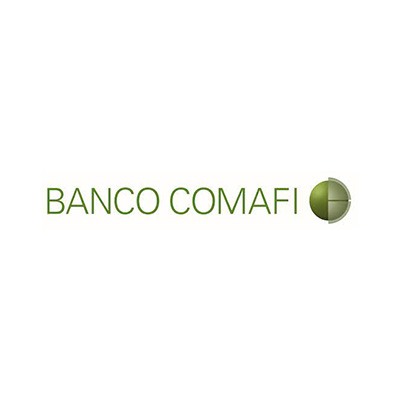

Deal counsel in the issuance and placement of trust securities in Argentina, for AR$ 11,000,000,000 issued under the “CFA CRÉDITOS VI” Financial Trust, in which Compañía Financiera Argentina S.A. (Efectivo Sí) acted as trustor, arranger, collection agent and placement agent; TMF Trust Company (Argentina) S.A. acted as financial trustee; Banco Patagonia S.A. acted as arranger and placement agent; Banco Comafi S.A. and Adcap Securities Argentina S.A. acted as placement agents.
360 Energy Solar S.A. Obtains US$ 17,000,000 Loan
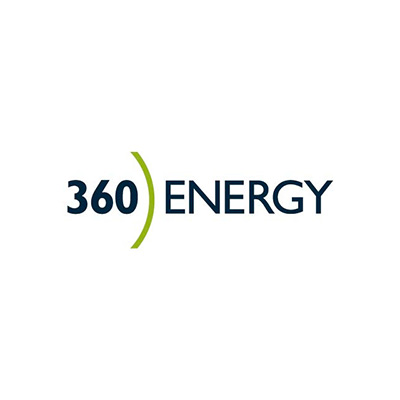



Counsel to 360 Energy Solar S.A. (the “Company”), as borrower; Banco BBVA Argentina S.A., as lender and administrative agent; Banco Comafi S.A., as lender and security agent; and Banco de la Provincia de Buenos Aires, as lender, in the granting of a loan to the Company for a total amount of US$ 17,000,000, disbursed on August 20, 2025.
The loan is secured by a guarantee assignment over cash flows arising from certain power supply agreements entered into by the Company with certain corporate clients.
Legal Advice in the Issuance of Loma Negra Compañía Industrial Argentina S.A.´s Series 5 Notes for US$ 112,878,134


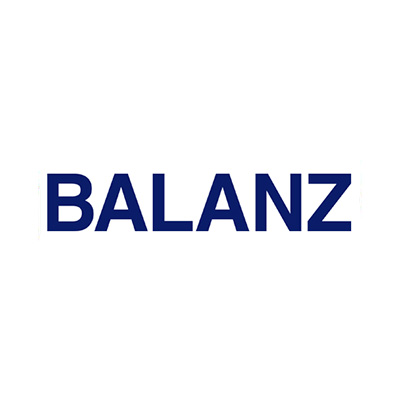
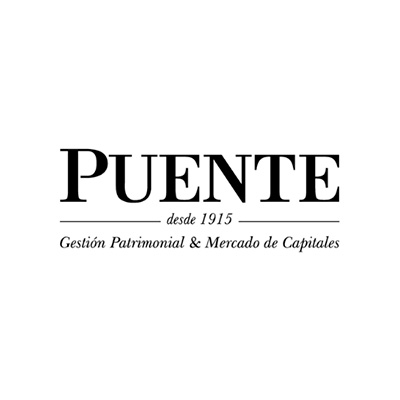
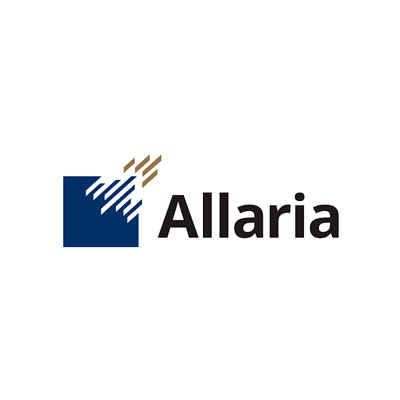

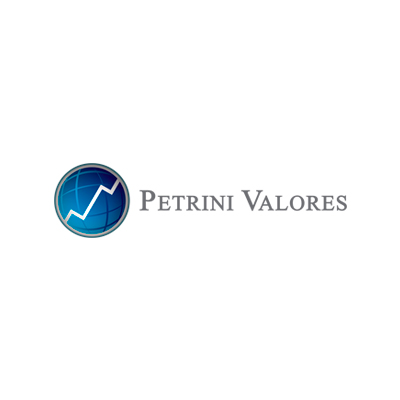
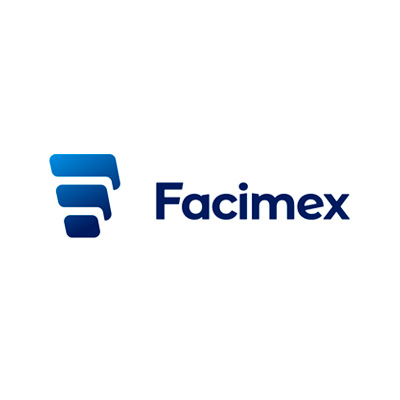


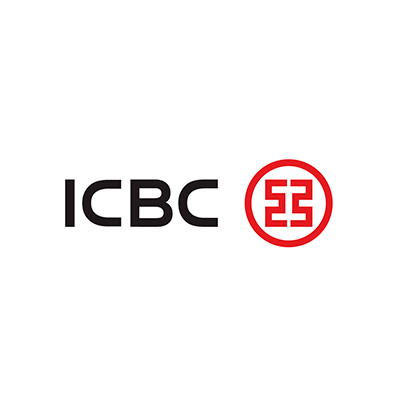



Counsel to Banco de Galicia y Buenos Aires S.A., Banco Santander Argentina S.A., Balanz Capital Valores S.A.U., Puente Hnos S.A., Allaria S.A., Invertir en Bolsa S.A., Petrini Valores S.A., Facimex Valores S.A., Cocos Capital S.A., Adcap Securities Argentina S.A., Industrial and Commercial Bank of China (Argentina) S.A.U., PP Inversiones S.A., Option Securities S.A. y Banco CMF S.A. as placement agents, in the issuance of Loma Negra Compañia Industrial S.A.’s Series 5 Notes for U$S 112,878,134, denominated and payable in U$S at an 8% annual interest rate, due July 24, 2027. The Series 5 Notes were issued under the company´s global notes program for an amount of up to U$S500,000,000.
Banco de Galicia y Buenos Aires S.A., Banco Santander Argentina S.A., Balanz Capital Valores S.A.U., Puente Hnos S.A., Allaria S.A., Invertir en Bolsa S.A., Petrini Valores S.A., Facimex Valores S.A., Cocos Capital S.A., Adcap Securities Argentina S.A., Industrial and Commercial Bank of China (Argentina) S.A.U., PP Inversiones S.A., Option Securities S.A. y Banco CMF S.A. acted as placement agents of the Series 5 Notes. Banco de Galicia y Buenos Aires S.A. also acted as settlement agent for the Series 5 Notes.
Promising Changes in Power Transmission Regulatory Framework
Today, July 22nd, 2025, Resolution 311/2025 (“Resolution 311”) issued by the Secretary of Energy (“SE”) was published in the Official Gazette in line with the recently added Section 31 bis of Law No. 24.065, which establishes that expansions of the Argentine Interconnection System may be carried out at the free will and own risk of whom executes them and regulations for such expansions should include the alternative of pursuing them under the Public Works Concessions framework (see our commentaries on the reform in the Electricity Sector here). This measure continues with the path set forth by Resolution 715/2025 of the Ministry of Economy, which defined the undertaking of certain expansions of the power transmission system as priority to be carried out under the terms of the Public Works Concession Law No. 17,520 (see our comments on this matter here).
These measures are aimed to set the stage for the next public bidding process to be carried concerning power transmission expansions and removing barriers that have historically hindered private sector participation in this industry. In that regard, the Undersecretary of Electric Energy (“SSEE”) is instructed to prepare the bidding documents for the “AMBA I”, “Línea 500 kV Río Diamante – Charlone - O´Higgins” and “Línea 500 kV Puerto Madryn – Choele Choel – Bahía Blanca” expansion works with the purpose of contracting their construction, operation and maintenance under the Public Works Concession structure.
Apart from a series of amendments to transmission expansions and the power regulatory framework, Resolution 311 instructs the SSEE to draft a new section that adds the transmission expansions by Public Works Concession structure to other existing alternatives.
In line with Resolution 715/2025 of the Ministry of Economy -which established that the contractor may finance the expansions by means of a monthly payment to be funded by a rate collected from end-users of the service identified as beneficiaries- CAMMESA is instructed to assist the SE in the determination of the end-user’s beneficiary of the above-mentioned works.
In addition, Resolution 311 introduces alternative financing structures to be included within each bidding process, encouraging private financing in exchange for obtaining the assignment of dispatch priority and/or priority of expansion use.
Although several additional steps are still pending, Resolution 311 has the potential, not only to reverse the current situation of deficit in the electricity transmission system -which currently presents risks associated with supply restrictions- but also to promote private investment across various industries.
***
For additional information, please contact Nicolás Eliaschev, Javier Constanzó, Daiana Perrone, Milagros Piñeiro, Macarena Becerra, María Paz Albar Díaz, Rocío Valdez, Victoria Barrueco, Sol Villegas Leiva, and/or Manuel Crespi.
Argentina's latest power market rule changes (Interview by BNamericas to our Partner Javier Constanzó)
The following interview to our partner Javier Constanzó was published yesterday, July 17, 2025, in BNamericas under the headline "Argentina's latest power market rule changes – key pillars and what happens now".

By Allan Brown
Argentina recently announced a series of power market rule changes after initial measures were unveiled earlier in the year and following promulgation of 2024's Ley Bases, known in English as the economic framework, or reform, law.
The latest move comes amid a push to ease state control over the power industry and spur private sector investment.
A key change stipulates that distributors must source at least 75% of electricity through corporate power purchase agreements. This, in turn, would shrink the role of wholesale power market administrator Cammesa as intermediary.
Another establishes energy storage players, user-generators and traders as participants in the national electricity market.
In parallel, officials advanced plans to create a single autonomous regulator, which would unify electricity regulator Enre and gas watchdog Enargas.
To get a helicopter view of the latest modifications, BNamericas conducted an email interview with Javier Constanzó, an energy, natural resources and infrastructure lawyer at local legal firm Tavarone Rovelli Salim Miani.
***
BNamericas: Argentina, via decree No. 450/2025, made more changes to the electricity market. Briefly, what are some of the main, or most pertinent changes?
Constanzó: Decree 450 builds on the mandate set forth in the Ley Bases [the so-called omnibus bill passed in June 2024] and the initial policy direction established by emergency decrees 55/2023 and 70/2023, which emphasized the need to foster competition, liberalize the electricity market, rationalize subsidies and ensure economic efficiency in the energy sector.
In particular, the Ley de Bases authorized the national executive to reform the regulatory framework governing the electricity sector – primarily laws No. 15,336 and No. 24,065 – with the aim of ensuring, among other objectives: (i) the free international trade of electric energy; (ii) the liberalization and expansion of electricity markets; (iii) the adjustment of rates to reflect the actual cost of supply, in order to support investment and ensure the continuous and reliable provision of public services; and (iv) the development and modernization of electric power transmission infrastructure.
Pursuant to that framework, the government issued decree 450/2025, which introduces the main significant changes:
- Reinforcement of federal supremacy: The decree strengthens limitations on provincial and municipal jurisdictions by explicitly mandating that their regulations must not obstruct the federal objectives set forth in the amended laws No. 15,336 and No. 24,065.
- Mandatory participation in the PPA market: Distribution companies are now required to source at least 75% of their electricity demand through the corporate PPA market. While law No. 24,065 had already recognized the right to enter into private PPAs, such arrangements – for conventional sources – have effectively been suspended since 2013.
- Transmission expansion mechanisms: The transmission framework is significantly modernized (although in-detail regulation needs to be issued). Expansion may now occur through: (a) obligatory expansion by operators, with associated costs incorporated into the transmission rate – a departure from the previous framework, under which operators were only remunerated for operation and maintenance; and (b) third-party development, allowing market participants to finance and construct new transmission assets either directly or under the public works concession model provided in law No. 17,520 (subject to changes by the Ley Bases with a strong focus on private investment and financing). The promoter may be granted priority of use. These measures align with the government's broader plan to develop backbone transmission infrastructure and to support energy-intensive sectors such as mining.
- Credit enhancement for distribution companies: To address chronic payment arrears and improve the creditworthiness of distribution companies, the decree introduces joint and several liability provisions that extend to the provinces and municipalities to which these companies are concessionaires. This mechanism seeks to ensure greater financial discipline and payment compliance.
- Cost-based rate setting: The decree reaffirms the principle of cost-reflective criteria not only for generation but also for transmission and distribution services, explicitly referencing the need to recover investment and O&M costs, and to ensure economic sustainability across the value chain.
- Clarification on subsidy targeting: Subsidies will be increasingly targeted at vulnerable users, rather than applied broadly across the consumer base. This transition supports fiscal consolidation and sends clearer price signals to industrial and commercial users.
- Incorporation of new market participants: The [wholesale electricity market] WEM is opened to new actors, including: (i) user-generators, or consumers who produce their own electricity; and (ii) energy traders and storage companies. This is particularly relevant in light of the government's ongoing tender for battery energy storage systems (BESS), which seeks to add 500MW of storage capacity to the grid.
BNamericas: It seems that the next phase involves implementation of the reforms. Is that correct?
Constanzó: Yes, the next stage is implementation. Several aspects of the new framework require secondary regulation, public consultation and detailed rulemaking. Decree 450 establishes a 24-month transition period to revise applicable regulations and complementary rules in accordance with the objectives of the new text of laws No. 15,336 and No. 24,065.
BNamericas: Compared with other reforms of the local power market over the past few decades, how significant or far-reaching is this one?
Constanzó: This is arguably the most far-reaching reform since the 1990s restructuring. Argentina did not have major reforms of the electricity framework since then. Unlike previous adjustments, which were largely reactive or piecemeal, decree 450 sets out a comprehensive and market-oriented overhaul. If sustained, it could structurally transform how the sector operates – regulatory, contractual and financial. However, the most important changes will come from the implementation rules which will be issued through the transition period.
BNamericas: Do you think the overhaul could eventually trigger investment in new projects, such as power plants, storage systems or transmission lines? Or do more parts of the "jigsaw puzzle" need slotting into place, such as access to financing?
Constanzó: We are very optimistic and think that the reforms do create the basis for new investment in new projects. However, further steps are needed to complete the picture – particularly the issuance of detailed implementation rules and maintaining a financing environment that enables long-term capital deployment and financing. Regulatory clarity, predictability and macroeconomic stability will be essential to translate the reform's objectives into actual project development.
BNamericas: Regarding the decree that unifies the two energy regulators and grants them autonomy, how do you think the private sector will view this change? On the surface, it seems like it would boost certainty.
Constanzó: The unification and formal autonomy of the electricity and gas regulators (Enre and Enargas) was mandated by the Ley Bases. In principle, this move should enhance regulatory certainty and independence, which the private sector has long called for. It should also help streamline the functioning of the gas and electricity markets
which are closely intertwined. The effectiveness of the change, however, will depend on how autonomy is exercised in practice –particularly regarding technical capacity, institutional safeguards and insulation from political cycles.
***
About Compañía Administradora del Mercado Mayorista Eléctrico S.A.
The Wholesale Electric Market Management Company (Cammesa) is a private Argentine nonprofit company. Its main objectives include the coordination of economic-technical offices from the Argentine Interconnection System (SADI), the supervision of the quality and safety of SADI operations, the monitoring of economic transactions in the spot
and future markets, and the management of billing, collection and finance operations of market funds. 80% of Cammesa is in the hands of agents of the wholesale electricity market, while the remaining 20%
belongs to the Ministry of Energy. CAMMESA was created in 1992 and is located in Buenos Aires.
About Ente Nacional Regulador del Gas
Argentina's national gas regulator Enargas oversees, inspects and dictates regulations in regard to security, environmental protection, technical and commercial procedures, and service and compressed natural gas (CNG) quality. It also approves rates that apply to service providers and issues various authorizations, such as those necessary
for the execution of large works, or to be considered as a distributor or vendor of natural gas in Argentina.
About Ente Nacional Regulador de Electricidad
Ente Nacional Regulador de Electricidad (Enre) is Argentina's national power regulator. Its mission is to regulate the companies acting in the electric power sector. It was created in 1993 by law 24,065. Among its main objectives, Enre has to promote competitiveness and investments in the industry, protect and ensure the users' rights and, at the same
time, ensure an appropiate tariff level.
Issuance of Public Debt Securities ER 2025 Series I and II by the Province of Entre Ríos for a total nominal value of ARS 75,110,000,000

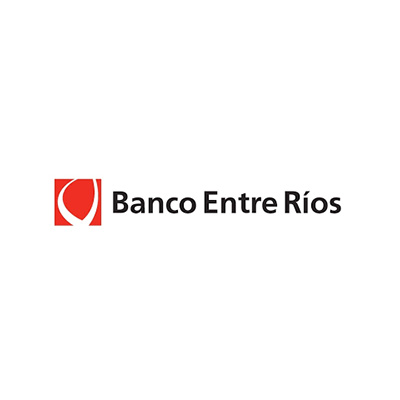
Legal advisors to the transaction, assisting the Province of Entre Ríos (the “Province”) and Nuevo Banco de Entre Ríos S.A., in its capacity as organizer and lead placement agent in the issuance of the ER 2025 Series I and Series II Public Debt Securities (the “Debt Securities”). The Debt Securities were issued on July 17, 2024, and are secured by resources from the Federal Tax Sharing Regime, assigned to a maximum allocation percentage of 25%. The Debt Securities Series I were issued for a nominal value of ARS 32,465,000,000, at a fixed annual interest rate of 35.75%, maturing on July 17, 2026; whereas the Debt Securities Series II were issued for a nominal value of ARS 42,645,000,000, at a variable interest rate equivalent to the TAMAR rate plus a 5.50% margin, maturing on January 17, 2027.
Province of Chaco ’s Serie Bonds Issuance for AR$ 52,000,000,000 (approximately US$ 40.784.313,7)


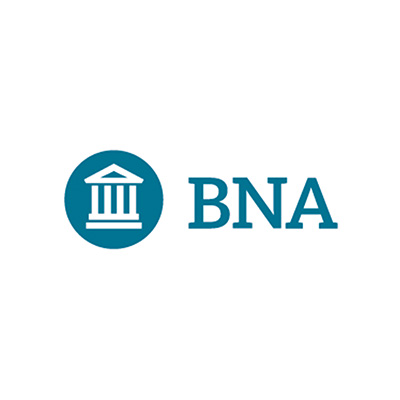

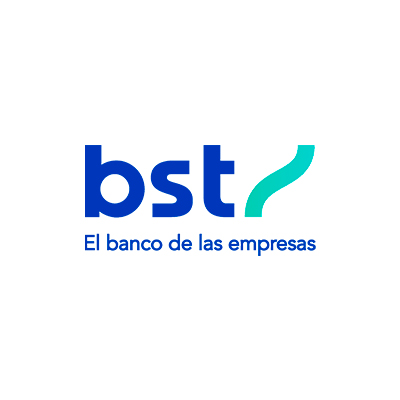
Legal counsel to Puente Hnos. S.A. and Nuevo Chaco Bursátil S.A., as co-arrangers and co-placement agents, and Banco de la Nacion Argentina, Global Valores S.A., and Banco de Servicios y Transacciones, as sub-placement agents, in the issuance of Province of Chaco’s Serie 1 Bonds (the “Serie 1 Bonds”), under the Province of Chaco’s Treasury Bonds Issuance Program for up to US$ 90,000,000. The payments due under the Serie 1 Bonds are secured by a collateral assignment over rights of the Province of Chaco arising from the Federal Tax Regime (Regimen de Coparticipación Federal). The Serie 1 Bonds were issued in an aggregate principal amount of AR$ 52,000,000,000 equivalents to approximately US$ 40.784.313,7. Principal under the Serie 1 Bonds is adjusted by the Wholesale Interest Rate (TAMAR) applied to fixed-term deposits denominated in Argentine pesos plus a 5.5% interest rate. The Serie 1 Bonds are due on July 14, 2026, and are repaid. The proceeds of the Serie 1 Bonds will be used exclusively to repay the debt service obligations maturing in August and September 2025, corresponding to loans obtained in 2019 and 2021 from the Financial Fund for the Development of the Rio de la Plata (FONPLATA) and the international bond issued in 2016 and restructured in 2021. Any remaining balance will be allocated to cover subsequent maturities.
Reforms in the Electric Power and Natural Gas Sector
On July 7, 2025, the Government of Argentina issued Decrees 450/2025, 451/2025, and 452/2025 ("Decree 450," "Decree 451," and "Decree 452"), pursuant to the powers delegated to the Executive Branch by Section 162 of the Foundations Law 27.742 (the "Foundations Law", see our commentary here).
- Decree 450 amends Laws 15,336 and 24.065 -key laws comprising the electric sector’s regulatory framework-. It also sets a 24-month transition period for revising regulations and issuing supplementary rules.
- Decree 451 enacts a revised text of Law 24,076 on Natural Gas (see our commentary here and here).
- Decree 452 establishes the National Regulatory Body for Gas and Electricity (the "Regulatory Body").
A summary of the main aspects of these Decrees is provided below:
1. Transition period
Decree 450 establishes a 24-month transition period to revise applicable regulations and complementary rules in accordance with the objectives of Law 24,065. During this period, the Secretary of Energy ("SE") must adopt regulations to:
- Promote market competition in the hydrocarbon sector, enabling free contracting of fuels by electricity generators and preventing market dominance.
- Ensure effective mechanisms for improving payment collection from electricity distribution utilities.
- Establish remuneration criteria for thermal generation and optimize the procurement of natural gas, LNG, gasoil, and fuel oil.
- Gradually assign energy contracts entered by CAMMESA to distributors and large users of the Wholesale Electricity Market ("WEM").
- Assign fuel contracts entered by CAMMESA.
- Review the “Procedures for Operation Scheduling, Load Dispatch and Price Calculation in the WEM” for potential repeal or replacement.
2. Decree 450
2.1. Amendments to Law 15,336
- Scope expansion: Decree 450 expands the scope of Law 15,336 to include electricity commercialization as a regulated activity.
- Legal nature: Electricity purchase and sale operations are classified as civil and commercial acts, in line with the National Civil and Commercial Code.
- Federal Jurisdiction: Provinces may regulate their local electric systems but must follow federal rules for distribution service providers in the National Interconnection Grid (“NIG”) and the WEM, in line with the objectives established by Law 24,065.
- Local Limitations: Local regulations must not obstruct the federal objective of a unified electricity market or prevent cost transfers in the WEM. Specifically:
- Illegitimate local taxes: Taxes disguised as service fees that are not based on actual services or exceed their cost are restricted.
- Barriers to cost recovery: Local rules cannot:
- Prevent WEM cost pass-through to rates.
- Restrain payment of distributor debts through CAMMESA.
- Undermine the financial sustainability of the electricity market.
- National jurisdiction activities: National concessions remain mandatory for:
- Hydropower facilities exceeding 500 kW.
- Public transport and electricity distribution services.
New rules for hydro concessions include 60-years limits, removal of royalty contributions to the National Electric Energy Fund, end-user choice and free commercialization, and use of private law for water and land rights. Upon expiration of the concession, a public bidding process is mandatory.
- Redefinition of the Federal Electric Energy Council (“FEEC”): The FEEC becomes a technical-advisory body, which is instructed to offer non-binding opinions on national electric system planning, establish the allocation index of the National Electric Energy Fund, and inform the SE about local compliance with Law 24,065 rate principles.Each province and the City of Buenos Aires (“CABA”)will appoint one representative and alternate. Congress may name three representatives for the senators and three deputies.
- Reform of the National Electric Energy Fund (“NEEF”): The NEEF will be composed of a 2% surcharge per kWh on WEM sales, reimbursements with interest from prior loans, and other contributions (e.g., donations).It will be administered by the SE, which will allocate:
-
- 19.86% of total revenue to high-voltage transmission works identified by the SE to ensure supply and high quality; and
- 80.14% will be distributed between:
- the Subsidiary Fund for Regional Tariff Compensation (60%) -allocated by the FEEC to provinces adhering to Law 24,065-
- the Special Fund for Electric Development of the Provinces (40%).
Assets from the dissolved Federal Electric Transport Trust Fund will be transferred to the SE for use in these transmission works. Section 31 bis requires that jurisdictions receiving resources from these funds must prove that their distribution service providers comply with Law 24.065 tariff rules and are updated on WEM payments.
-
- Reform of the Special Fund for Electric Development of the Interior:
The fund is restructured by eliminating rate surpluses and surcharges imposed by the National Executive in CABA and Greater Buenos Aires and by increasing its share of contributions from the NEEF. The FEEC role in distributing the fund’s revenue is removed and new rules intended to ensure the return of loans are established.
- Powers of the SE: The SE’s role is narrowed to strategic oversight and advisory functions.
- Repealed Provisions: The reform repeals Section 26 and 28 of Law 15,336 -related to the transitional operation of the FEEC-, Sections 45 to 48 -on administrative sanctions, now governed by Law 24,065-, and Law 25,957, which had created the former Federal Electric Transport Trust.
2.2. Amendments to Law 24,065
- Redefinition of Purpose – Updates the general policy objectives of Law 24.065: Law 24.065 is revised to redefine its general objectives, now including:
- Promotion of term PPAs among private parties.
- Rate regulation based on actual supply costs.
- Consumer choice.
- Price quality alignment through economic signals.
- Energy diversification, smart metering, and demand-side tools.
- International electricity trade and regional system integration; and
- System’s financial sustainability.
- New WEM Participants – Adds new roles such as prosumers, marketers, and storage operators: New market actors are introduced into the WEM, including:
- User-generators comprised by the distributed generation regime of Law 27,424; and
- Other participants defined by regulation, including marketers and storage operators.
- Distribution Utility Obligations: Distributors remain responsible for supplying their end-users within their concession area and must now procure at least 75% of their demand from the Corporate PPA market.
- Certificate of Public Convenience and Necessity: The Regulatory Body must ensure public disclosure of these certificate applications and hold a public hearing before deciding whether to grant them or not.
- Prevention of anticompetitive practices: Acts involving anticompetitive conduct, including abuse of dominant position and unfair competition are prohibited. The Regulatory Body must intervene to protect users and refer relevant cases to the National Competition Authority, as required by the Foundations Law. It may also adopt measures to safeguard user rights and ensure compliance.
- Essential transmission works not included in existing concessions: The SE, after consulting with CAMMESA, may authorize transmission works not included in current contracts if they are technically and economically essential to the operation of the Argentine Interconnection System ("SADI", for its Spanish acronym). For these purposes:
- The use of resources from the NEEF is authorized.
- The Regulatory Body may include the cost of the expansion in the relevant tariff structure.
- Contracting must be done through open, competitive, and auditable procedures.
- Private initiative for SADI expansions: The National Executive may authorize generators, distributors, and/or large users to build transmission lines or expansions at their own expense, provided that competition in the WEM is not affected. These facilities will not be considered public transmission services, and the National Executive will regulate modalities, technical requirements, use priority, and authorization conditions. Section 31 bis confirms that private SADI transport works may be carried out at the agent’s own risk. Expansion alternatives will be defined by regulation, including projects under Law 17.520 on Public Works Concessions. In this line, Resolution 715/2025 from the Ministry of Economy prioritizes certain transmission works to be executed under this framework (see our comments on these changes here and here).For each project, the regulation will define:
- Technical and economic impact assessments based on CAMMESA’s report-
- Conditions for COD-
- Dispatch priority rules (limited to investment recovery period) and possible assignment to WEM actors-
- Priority dispatch rules for renewable energy in case of curtailment; and
- Compensation mechanisms corresponding to expansion works.
- Simplification of international electricity trade: The SE may authorize electricity imports and exports using efficient, transparent, and competitive mechanisms. It may also reject operations for technical or economic reasons affecting national supply security.
- Corporate PPA Market: Enshrined via new Section 39 bis. WEM-based PPAs are essential to policy goals and demand coverage. Local rules hindering these contracts are prohibited.
- Rate Determination Principles: For distribution rates, WEM electricity acquisition costs will include:
- Spot market purchase prices and the weighted average from term market contracts under SE contracting rules.
- High-voltage transport costs; and
- System services managed by CAMMESA.
Bills must itemize these charges and may not include local taxes or unrelated charges.
- Creation and Functions of the Regulatory Body: Established as national authority under SE, replacing ENRE. Inherits all regulatory powers.
- Amendment to Law 19,552 on Electric Easements: the law is amended to establish administrative easements in favor of national jurisdiction concessionaires, entitle affected property owners to compensation, excluding lost profits, and enable faster proceedings.
3. Decree 451
Decree 451 enacts a consolidated text of Law 24,076, amending the natural gas legal framework to reflect the creation of the new Regulatory Body. The Regulatory Body replaces the National Gas Regulatory Body (“ENARGAS”) in all functions.
4. Decree 452
Decree 452 constitutes the Regulatory Body pursuant to Section 161 of the Foundations Law, consolidating the functions previously held by ENARGAS and ENRE. Operating under the SE, the Regulatory Body must become operational within 180 calendar days of the decree’s publication. It is granted administrative and budgetary autonomy, functional independence, and full legal capacity to act under both public and private law.
***
For additional information, please contact Nicolás Eliaschev, Javier Constanzó, Daiana Perrone, Milagros Piñeiro, Macarena Becerra, Rocío Valdez, María Paz Albar Díaz, Victoria Barrueco, Sol Villegas Leiva, and/or Manuel Crespi.
Province of Córdoba’s Debt Issue for US$ 725,000,000
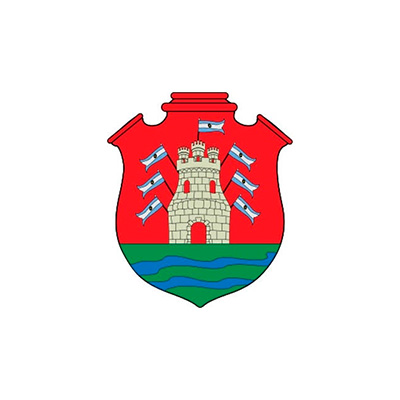
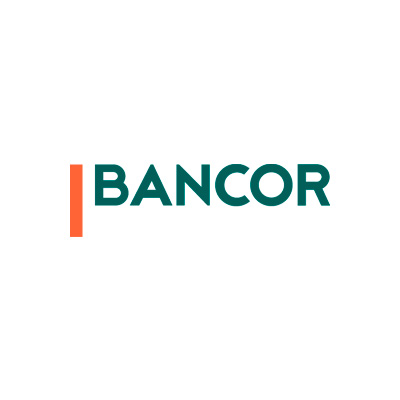
Legal counsel to Province of Córdoba, as the issuer, and Banco de la Provincia de Córdoba S.A., as Argentine manager and placement agent, in the issuance of US$725 million worth of sovereign debt in an offering that settled on July 2, 2025. The Notes bear a 9.750% annual coupon and mature on July 2, 2032. The Province of Córdoba used a portion of the notes sale – US$362 million – to repurchase US$360,338,929 aggregate principal amount of its U.S Dollar Step-Up Notes due 2027. The remaining portion of the funds will be used for finance infrastructure projects and/or repay existing liabilities.
J.P. Morgan Securities LLC and Santander US Capital Markets LLC acted as global coordinators and joint book-running managers, Balanz Capital UK LLP acted as joint book-running manager, Banco de la Provincia de Córdoba S.A. acted as Argentine manager and placement agent, and Banco Santander Argentina S.A., Balanz Capital Valores S.A.U., Banco de Galicia y Buenos Aires S.A., Les Cinq Capital S.A., Puente Hnos. S.A., Facimex Valores S.A., Becerra Bursátil S.A. and S&C Inversiones S.A. acted as Argentine placement agents. Under the indenture, Deutsche Bank Trust Company Americas acted as trustee, registrar, principal paying agent and transfer agent.
Municipality of Río Cuarto’s Series XXXIX Treasury Notes Issuance for AR$2,100,000,000







Legal counsel to the Municipality of Rio Cuarto, as issuer, Banco de la Provincia de Córdoba S.A., and Puente Hnos. S.A., as arrangers and placement agents, and Banco de Galicia y Buenos Aires S.A., Adcap Securities Argentina S.A., Global Valores S.A., and Becerra Bursatil S.A., as placement agents in the issuance of Municipality of Río Cuarto’s Series XXXIX Treasury Notes (the “Treasury Notes”), under the Municipality of Río Cuarto’s Treasury Notes Issuance Programme. The transaction closed on June 23, 2025, and the Treasury Notes are secured by the Municipality's credits for contributions levied on commercial, industrial and service companies’ activities, and subsidiarily by the resources derived from the Federal Co-participation Regime. The Treasury Notes were issued for AR$ 2,100,000,000 at an annual floating interest rate equivalent to Tamar plus 7.00%, due on June 23, 2026.



